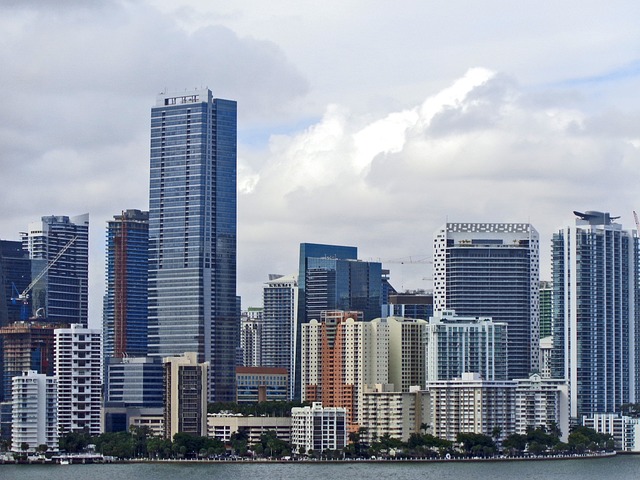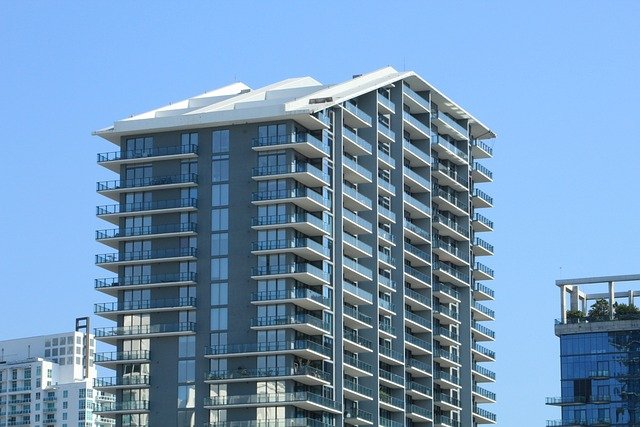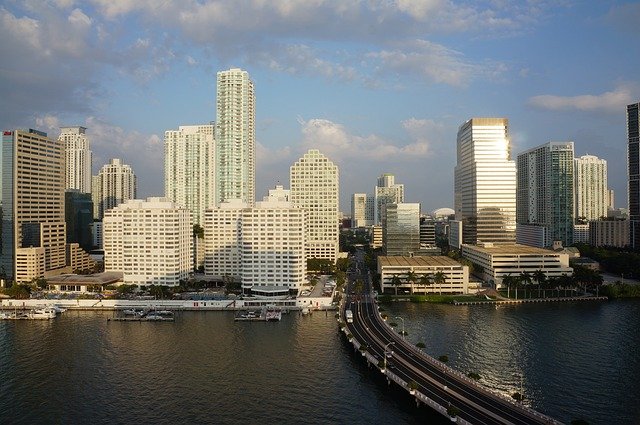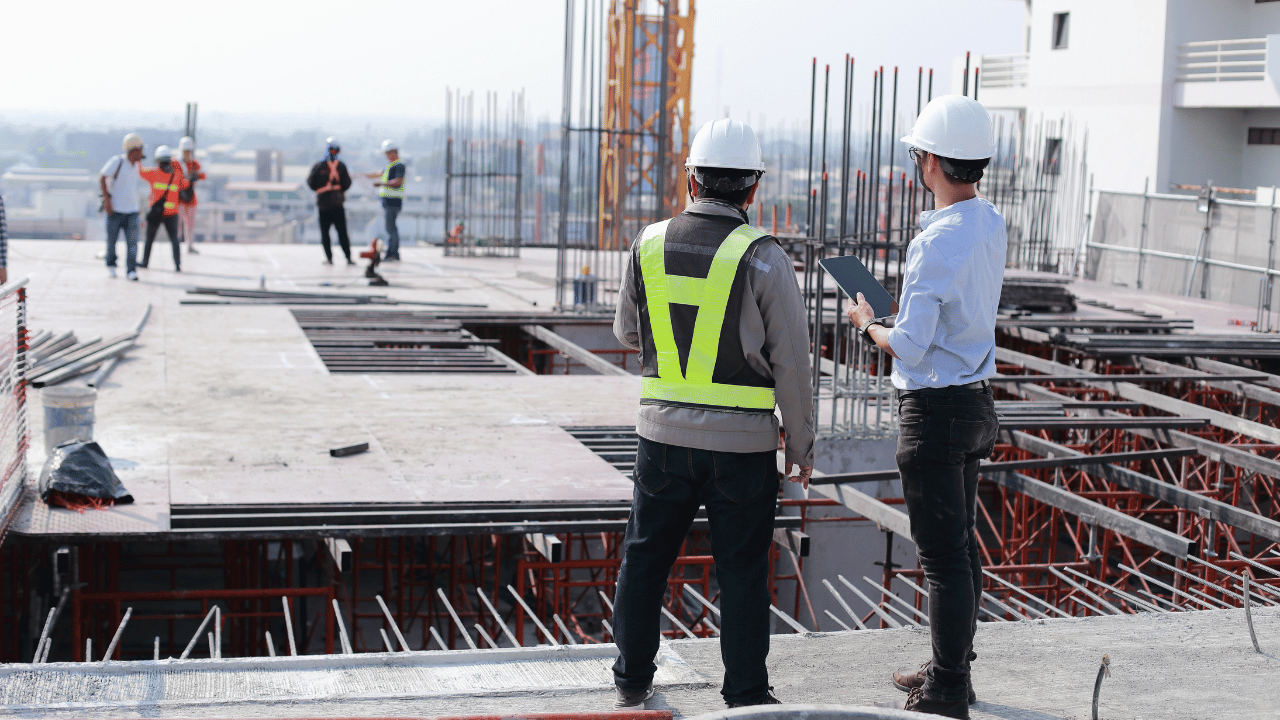
A Complete Guide To 40 Year Recertification (Miami-Dade and Broward Counties)
John Souffront

A 40-year recertification is a prerequisite for all structures in the counties of Miami-Dade and Broward, including condo buildings.
Talking about a 40 year inspection and recertification process for condos, its importance can’t be overstated, given that it involves the safety of hundreds of thousands of people.
In fact, if data from the Community Association Institute is any suggestion, there are over 1.5 million condominium units across Florida. And among these condo units, 37 percent of them are present in the two counties of Broward and Miami-Dade.
As such, you shouldn’t be surprised when we say that condo buildings are among the top priorities for structural engineer inspection and recertification.
Furthermore, in the aftermath of the tragic Surfside condo collapse, the overall safety of condominium buildings has come into focus. After all, the Champlain Towers South building was undergoing a 40-year structural inspection at the time of its collapse. Thus, the latest round of changes to the recertification scheme in Miami-Dade was much called for.
Now, if you are a member of your condominium board or association, the onus is on you to get a timely 40-year recertification inspection. Also, if your condo building is in Miami-Dade, you’ll need to comply with the new county rules calling for a 30-year recertification instead of 40.
And while this may sound like a task, we have compiled everything that you need to know for hassle-free condo recertification.
Don’t Miss the Deadline; Get Your 40-Year Inspection Done Today!
Missing the inspection deadline can lead to penalties and some severe consequences. Not to forget your building’s structural integrity and occupants’ safety is at stake too. Schedule an inspection and have that peace of mind.
What is a 40 year recertification?
As the name suggests, a 40 year inspection and recertification is a mandatory exercise for all buildings in the two Florida counties of Miami-Dade and Broward.
Think of it as an essential safety check conducted by qualified professionals, such as licensed engineers and architects, who identify potential problems that may arise as your building ages.
For instance, let’s say you live in a condominium that’s 40 years old. Now, there are chances that this condo might have developed structural problems, roofing cracks, etc., during these many years.
So, a 40 year structural inspection will detect these problems and allow you to fix them, thus avoiding safety hazards and keeping you compliant with local codes.
Similarly, you’ll need an inspection and recertification every 10 years after the first inspection. This ensures your aging condominium continues to remain safe and that its major systems and components meet required standards.
Which buildings need a 40 year inspection and recertification?
The type of buildings included in the recertification program differs slightly in Miami-Dade and Broward. Here are the building types that need recertification:
- Miami-Dade: All buildings expect single family homes sized up to 2000 sq ft and with 10 or less occupants.
- Broward: All buildings expect single-family homes sized less than 3500 sq ft. Also, Federal and State buildings built on Indian Reservations in Broward County need not be inspected.
In short, nearly all buildings in these two counties are required to get a 40 year inspection and obtain a recertification. Moreover, all condominiums notwithstanding their size need to be inspected and certified.
What are the new 30/40 year recertification rules for condo buildings in Miami-Dade?
Post the Surfside condo collapse, there had been strong demands to change the existing recertification inspection rules. And Miami-Dade county responded with a slew of changes to the 40 year structural inspection scheme, effective June 2022.
Among the key highlights of the changes in rules is a 30/40 year recertification inspection requirement for all structures, condos included.
That means you’ll have to get your condominium building thoroughly inspected and recertified in its 30th year. Further, recertification of your condo building will be carried out every ten years thereafter, and so the name 30/40 year recertification.
But there’s a catch with the new Miami-Dade county rules, something you should be aware of.
- If your condo was built anywhere between 1983 and 1986 and has a 40-year recertification due before March 31, 2024, the new rules won’t apply to it. Meaning, the building needs to get a recertification certificate in its 40th year.
- If the condominium was constructed between 1983 and 1992 and is about to turn 30 before March 31, 2024, a recertification will be done as per the new rules.
- If your condo building built between 1983 and 1997 is located within three miles of the coast, it needs a mandatory inspection and recertification before December 31, 2024. Also, for all condos within three miles of the coast, a 25-year recertification timeline will apply instead of 30.
What is the cost of 40 year condo recertification?
The cost of 40 year recertification for condo buildings varies for different municipalities in Miami-Dade and Broward.
For instance, municipalities like Miami Beach, Miami, Surfside, Hialeah, etc., oversee the recertifications in their jurisdictions, and each levies a different fee for the process. For unincorporated areas of Westchester and Kendall, Miami-Dade County’s Regulatory and Economic Resources department is in charge of overseeing recertification and charging a fee.
Recertification charges apart, your municipality may even charge you an additional fee for application, an extension of recertification, a late fine, and more.
Here’s a fee comparison of different municipalities for a better understanding:
While the municipality of Miami requires you to pay a fee of $276 for recertification, in Fort Lauderdale, you need to pay a $300 fee while submitting an inspection report.
Similarly, Fort Lauderdale levies a fee of $500 for every three months of extension, while Miami Beach charges a $600 fee for an extension of six months.
Further, you’ll also have to factor in the cost of hiring an expert for the structural engineer inspection, along with possible building repair and restoration requirements.
Will the recertification process increase your monthly HOA fee?
As an owner of a condo unit, your biggest question at the time of 40 year recertification could be whether or not it’ll increase the monthly HOA fee.
That’s because the recertification process may involve extensive repairs on top of municipal and structural inspection fees, and as a homeowner, you may well have to contribute towards it.
Nevertheless, when it comes to the condo associations having to earmark a certain amount towards necessary repairs and other recertification costs, Florida’s laws are quite relaxed (but the same cannot be said in the case of milestone inspections). As such, condo owners can have an HOA vote to not set aside an amount for recertification and thereby prevent an increase in their monthly association fee.
But the fact that you can keep your monthly HOA fee lower despite upcoming recertification can be equally problematic.
How?
You see, getting past 40 year recertification can be expensive, especially for large condo buildings that might have developed issues over the years. And failing to set aside an amount will only prompt the condo board to delay the required repair and restoration.
Not to forget, delays in inspections and post-inspection repairs will only endanger the safety of inhabitants, as was the case with the collapsed Surfside condo.
How to know if it’s time for your condo’s recertification?
Much before your condo building turns 40; the county will send a notice of required inspection and recertification. In fact, as per the revised 30/40 year recertification inspection scheme in Miami-Dade, the county will now send in the notice up to two years in advance.
That means the condo association will have enough time to complete the repairs, undergo the inspection process, and have an inspection report handy.
Also, since the new regulations consider the inspection reports valid for up to two year-old inspection you can schedule an inspection shortly after receiving the county’s notice.
However, it is possible that a condo association doesn’t receive county notice. And in such a situation, it is the responsibility of the association and its members to get the building recertified on time regardless.
Further, as a resident or owner of a condo unit, you might have to let the home building inspector in for a structural or thermography service. And to that end, you will receive prior notification from the building owner or condominium association.
Read: Why Garage floor resurfacing is best option for you?
What if the condo fails to get a 40 year recertification?
It is commonplace for a thirty/forty-year-old building to have defects that call for repairs. And the 40 year inspection is the best time to learn about such issues and address them timely.
Moreover, the inspection report details all possible problems in depth, and counties allow up to 180 days time period to fix them before applying for recertification.
Nonetheless, if your condo association fails to submit the recertification inspection report, the building will receive a civil violation notice. Also, the county might even refer to the building as an unsafe structure.
In the latter situation, where the condo building is declared unsafe, the county can order a complete evacuation and potentially demolish the building. So it is important that the condo associations and their members meet the legal and building safety requirements by ensuring timely recertification.
How to check for your condo building’s upcoming recertification?
You can check if your condo’s recertification timeline is nearing by finding out how old the building exactly is. And that’s a fairly simple process; all you need to do is visit the website of Miami-Dade or Broward county’s property appraiser and type in your address.
Since the results will include the year of your condo’s construction or certification, you’ll be able to easily calculate the 40th year.
Also, checking a condo’s recertification history is easy for those areas falling in the jurisdiction of Miami-Dade county’s Department of Regulatory and Economic Resources. That’s because you can do so by simply accessing Miami-Dade county’s online portal with the recertification database from May 1996 to the present.
Similarly, the Citizen Self Service portal for the municipality of Miami Beach provides you with information on building inspection, recertification, permits, and much more.
How long will the condo inspection and 40 year recertification process take?
The amount of time that your condo building’s 40 year recertification takes depends on multiple factors, including the building size and how extensive are the required repairs.
Typically, the counties of Miami-Dade and Broward provide a time period of 90 days from the date of issuance of the recertification notice to submit the inspection report.
Further, for repairs and restorations, as stipulated by the structural engineer report, Miami-Dade allows between 60 and 150 days. Broward County, at the same time, provides 180 days to comply with the initial 40-year inspection report.
Read: THRESHOLD BUILDING INSPECTION GUIDE: HERE’S WHAT YOU NEED TO KNOW
Final words
A 40 year recertification in the counties of Miami-Dade and Broward is a legal requirement for both building owners and condo associations. And as a resident or owner of a condo unit, you should definitely keep track of your building’s recertification timeline and press the association for timely compliance.
After all, the legal ramifications, as well as the safety consequences of not getting timely recertification, are much higher than the cost of recertification.
Looking to get a 40 year inspection for your condominium?
You can reach out to us.
At Souffront Construction and Engineering, we are a team of seasoned structural engineers and inspectors registered in the state of Florida. So whatever your building type and size, you can rely on for an all-inclusive inspection and post-inspection support. But that’s not all, we also provide a host of other services such as threshold inspection, seawall inspection, structural integrity reserve study, MEP designs, general contracting, concrete restoration and more. Just let us know and we’ll do our bit to help you out.
You can also read: How Surfside Condo Tragedy Changed 40-Year Recertification Inspections
Frequently Asked Questions
Why was there a change in Florida’s Building recertification program?
After the tragic collapse of Champlain Towers in Surfside, Florida, in June 2021, resulting in significant loss of life, Florida introduced revisions to its building safety inspections. While some stringent requirements were already in place, this incident prompted broader changes statewide. The recertification program was adapted post-collapse to enhance safety measures and prevent future tragedies.
What if I have already finished the 40-year recertification?
Completing the 40-year recertification before the changes brought by Senate Bill 4-D means you’re largely compliant. However, new additions include a Structural Integrity Reserve Study (SIRS) to forecast repair costs. If you’ve been following a 10-year inspection cycle, continue with it. The SIRS provides valuable insights for budgeting maintenance and repairs in your region.
What components are examined during the inspection?
The 40-year inspection scrutinizes structural and electrical aspects. Qualified engineers or architects assess foundations, masonry walls, framing systems (steel, wood, concrete), and electrical services like fire safety systems and panels. This comprehensive evaluation applies to both commercial and residential buildings, ensuring safety and compliance in Miami-Dade County, Broward County, and other Florida regions.
How can I determine if my building requires recertification?
Buildings constructed before 1982 adhere to the 40-year inspection schedule. Those constructed between 1983 and 1997 (within 3 miles of the coast) must be recertified by December 31, 2024, and every 10 years thereafter. As per the county regulations, specific timelines vary based on construction year and proximity to the coastline.
Which buildings in Florida do not participate in the 40-year inspection program?
Several buildings are exempt from the safety inspection program, including U.S. government buildings, state of Florida buildings, certain educational institutions, small residential structures, townhouses, and minor buildings under 3500 sq ft. These exemptions streamline focus on larger-scale structures and ensure effective resource allocation.
What is the process for submitting the inspection reports to the local authorities?
Once your inspection is complete, you’ll receive a detailed report. It’s crucial to personally submit this report to the county’s building department within the specified timeframe. You are responsible for ensuring timely compliance and upholding safety standards, as the inspector does not handle the submission on your behalf.
John Souffront
John Souffront is a seasoned leader in the construction and engineering industry, with over a decade of experience at the helm of Souffront Construction & Engineering. Known for his unwavering commitment to excellence and innovation, John has propelled his firm to the forefront of the field, delivering cutting-edge solutions for complex projects around the country.
Build Your Project
Ensure safety and compliance on your construction site with our experienced team. Call us today.
Contact Us




